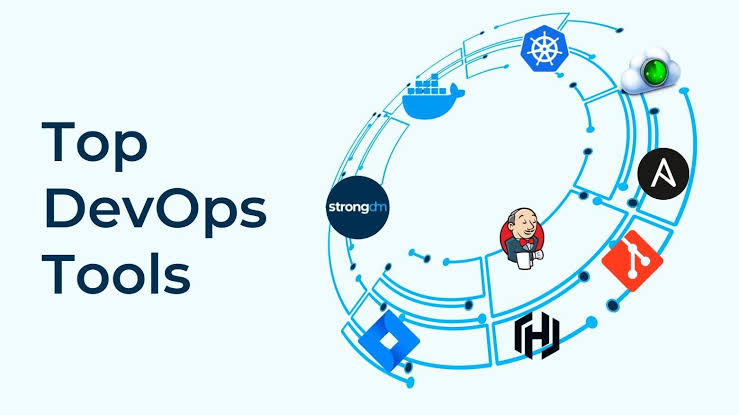The DevOps movement continues to shape how software is built, tested, and delivered, with tools playing a critical role in streamlining operations and accelerating innovation
As of June 2025, DevOps continues to evolve as a vital discipline in modern software development and IT operations. The adoption of DevOps practices has significantly improved collaboration between development and operations teams, enabling faster delivery, improved product quality, and more efficient workflows. Central to the success of DevOps are the tools that support automation, integration, testing, deployment, monitoring, and security. These tools form the backbone of a seamless DevOps pipeline. Below is a comprehensive look at the top 10 DevOps tools in use today, ranked for their relevance, features, scalability, and community support.
10. Puppet
Puppet is a configuration management tool that allows system administrators to automate the provisioning and management of infrastructure. It uses a declarative language to define system configurations, ensuring consistency across development, testing, and production environments. Puppet supports agent-based and agentless configurations, making it adaptable for various infrastructures. As of 2025, Puppet remains valuable for enterprises looking to maintain a strong compliance posture while managing large-scale, hybrid environments.
9. Prometheus
Prometheus is a widely used open-source monitoring and alerting toolkit designed for reliability and performance visibility in DevOps workflows. It collects metrics from configured targets at given intervals and allows users to query those metrics using its powerful PromQL language. Prometheus is well-integrated with visualization tools like Grafana and supports a broad ecosystem of exporters. With the growing focus on observability in DevOps, Prometheus remains a key component for identifying issues before they impact end-users.
8. Docker
Docker has revolutionized software delivery by introducing lightweight containers that allow developers to package applications with all their dependencies. Containers ensure that software behaves the same regardless of where it runs, eliminating the age-old "it works on my machine" problem. In DevOps pipelines, Docker facilitates efficient testing, deployment, and scalability. With Kubernetes becoming the go-to orchestration platform, Docker still plays a foundational role in creating container images and simplifying development workflows.
7. GitLab
GitLab is a comprehensive DevOps platform that includes source control, CI/CD pipelines, issue tracking, and monitoring—all within a single application. It allows for tighter integration across the software development lifecycle and reduces the need to switch between multiple tools. Its Auto DevOps feature enables automated testing, security scanning, and deployment pipelines. GitLab’s ability to unify development and operations under one roof has made it increasingly popular among teams striving for simplicity and efficiency in their DevOps journeys.
6. Jenkins
Jenkins is one of the most well-established automation servers in the DevOps ecosystem. It allows developers to build, test, and deploy their code automatically through a series of customizable pipelines. Jenkins has a vast plugin ecosystem that enables integration with nearly every tool and service in modern development stacks. Despite the emergence of newer CI/CD tools, Jenkins remains highly relevant in 2025 due to its flexibility and strong community support, especially for complex, enterprise-level projects.
5. Terraform
Terraform by HashiCorp is an infrastructure as code (IaC) tool that enables users to define and provision infrastructure using a high-level configuration language. It supports multiple cloud providers such as AWS, Azure, and Google Cloud, allowing for cross-platform deployments. Terraform ensures infrastructure is version-controlled, repeatable, and auditable. As infrastructure automation becomes more critical in DevOps, Terraform continues to be a go-to tool for managing cloud resources efficiently and reliably.
4. GitHub Actions
GitHub Actions provides native CI/CD functionality within GitHub repositories. It allows developers to automate workflows directly from their code repositories using YAML configuration files. With reusable actions, matrix builds, and strong integration with GitHub's ecosystem, it simplifies pipeline creation for small and large projects alike. GitHub Actions has grown rapidly in popularity due to its simplicity, scalability, and ability to keep everything under a single source control platform. In 2025, it stands out as an essential tool for teams already invested in the GitHub ecosystem.
3. Kubernetes
Kubernetes has become the standard for container orchestration, allowing DevOps teams to deploy, manage, and scale containerized applications efficiently. It automates key aspects of application management such as scaling, failover, and deployment rollbacks. With support from all major cloud platforms and a large open-source community, Kubernetes plays a crucial role in the move toward cloud-native architectures. Its dominance in the container orchestration space continues into 2025, especially in microservices environments.
2. Ansible
Ansible is a powerful automation tool used for configuration management, application deployment, and task execution. Unlike some other tools, Ansible uses an agentless architecture and a simple YAML-based language, which makes it accessible to beginners while being powerful enough for complex tasks. It integrates well with cloud platforms, network devices, and container environments. In 2025, Ansible continues to be preferred for automating repetitive operations, managing multiple environments, and enabling infrastructure as code practices.
1. Azure DevOps
Azure DevOps is a comprehensive suite of development tools from Microsoft that provides end-to-end DevOps capabilities. It includes features for agile project planning, source control, continuous integration, artifact management, deployment automation, and monitoring. Azure DevOps supports multiple programming languages and platforms, making it highly versatile for cross-functional teams. Its deep integration with Azure Cloud services and Git repositories makes it a top choice for organizations leveraging Microsoft's ecosystem. In 2025, Azure DevOps leads as the most complete and enterprise-ready DevOps tool.
